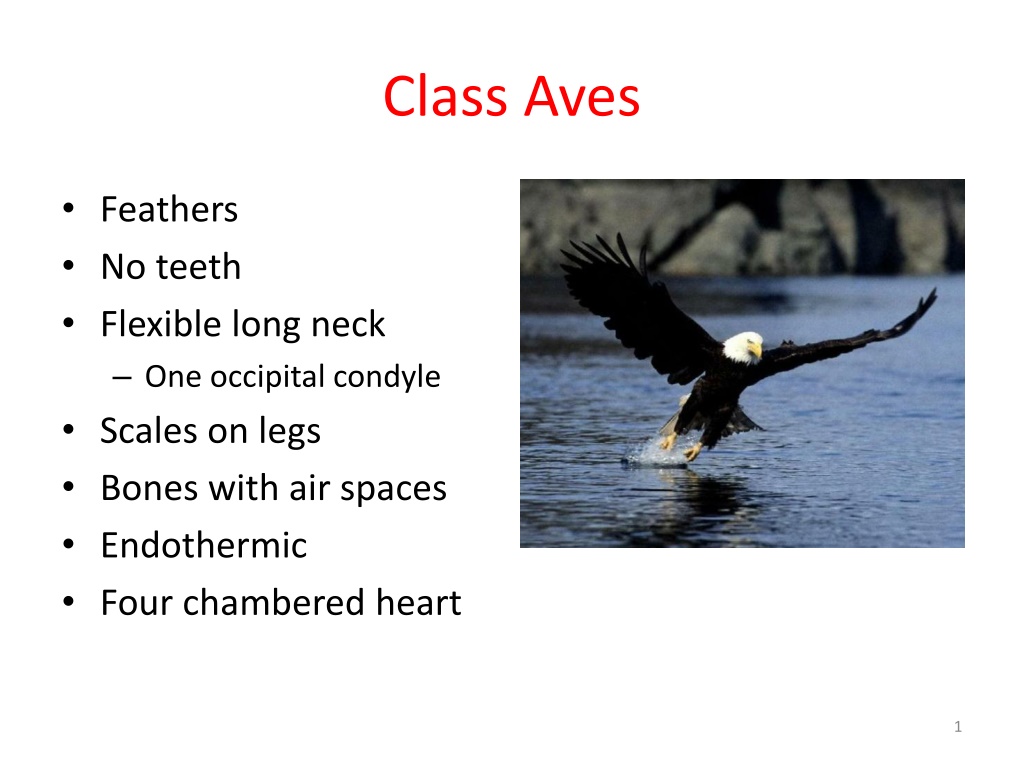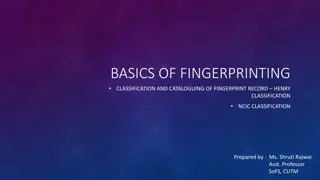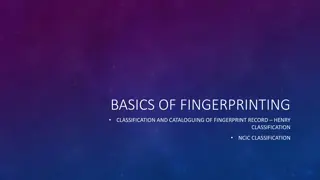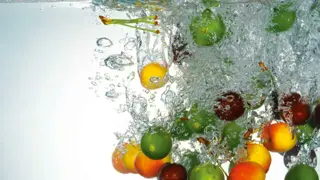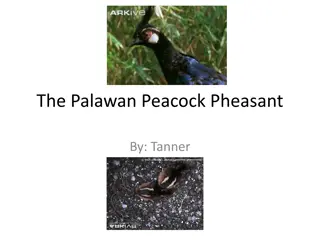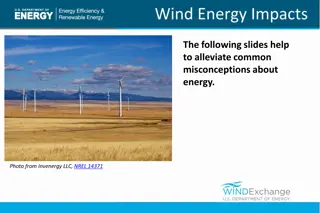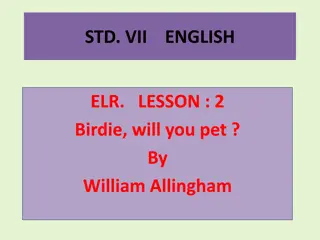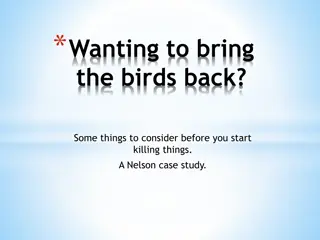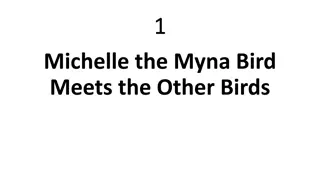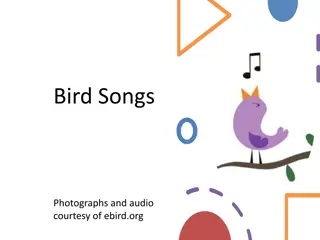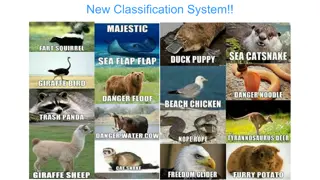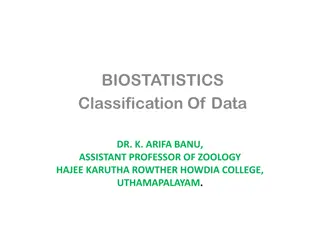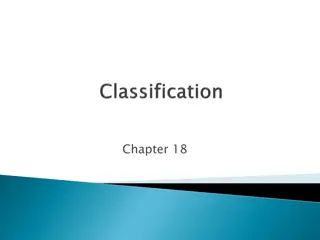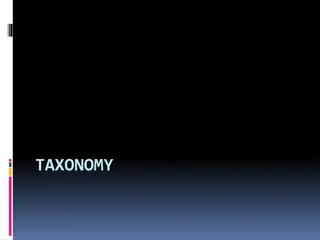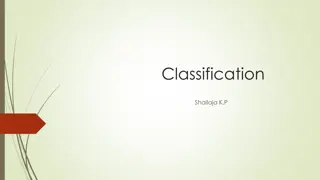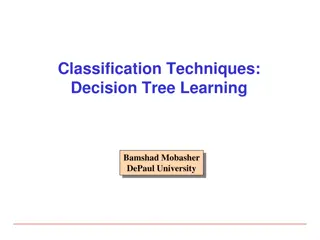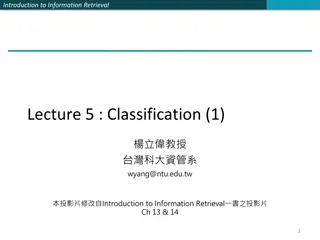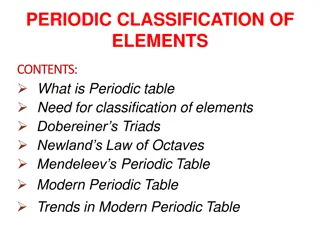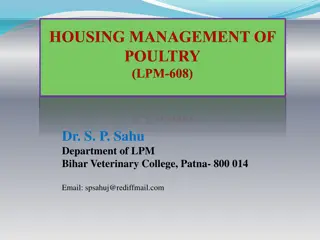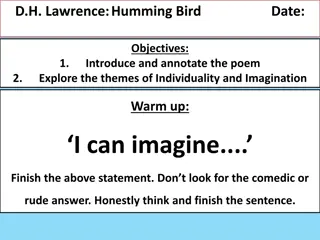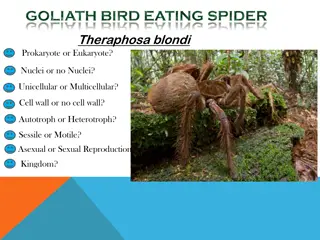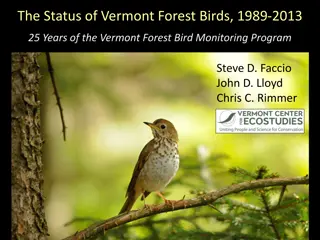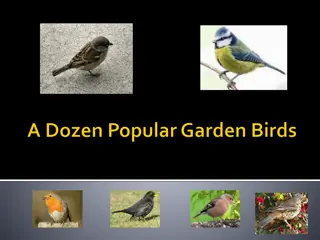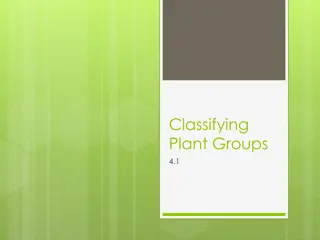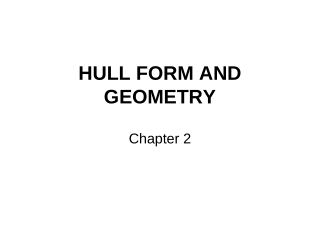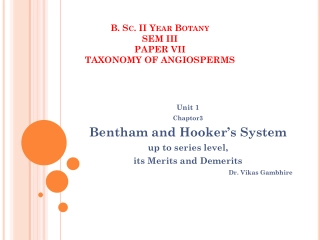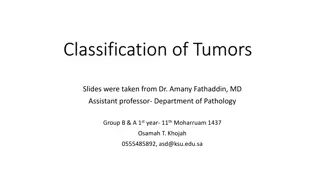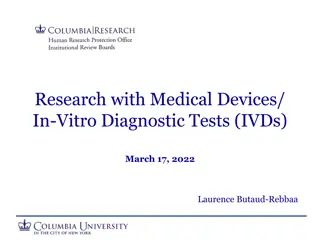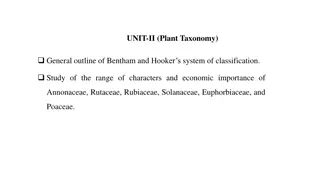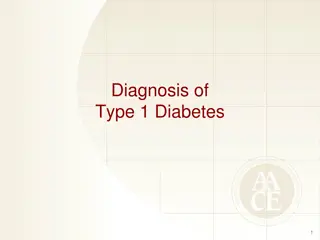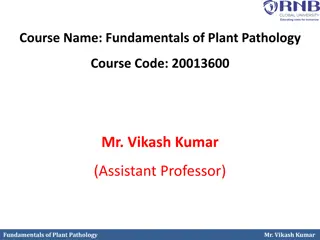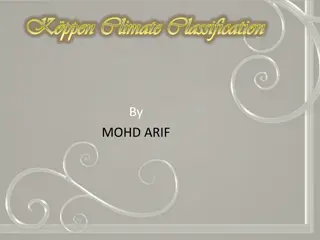Bird Classification and Evolution
Explore the fascinating world of birds, from the ancient Archaeopteryx to the diverse modern avian orders. Learn about the characteristics that define birds, the evolution of different subclasses, and the unique features of each superorder within the class Aves.
Download Presentation

Please find below an Image/Link to download the presentation.
The content on the website is provided AS IS for your information and personal use only. It may not be sold, licensed, or shared on other websites without obtaining consent from the author. Download presentation by click this link. If you encounter any issues during the download, it is possible that the publisher has removed the file from their server.
E N D
Presentation Transcript
Class Aves Feathers No teeth Flexible long neck One occipital condyle Scales on legs Bones with air spaces Endothermic Four chambered heart 1
Bird Classification 28 orders 9600 species 2
1) Subclass Archaeornithes - Old birds Ancestral birds; Extinct; (Jurassic Fossils) 2) Subclass Neornithes - New birds i) Superorder Odontognathae - Toothed birds; Extinct; (Cretaceous Fossils) ii) Superorder Paleognathae - "Ancient Jaw" Modern birds with a primitive palate 5 Orders iii) Superorder Neognathae - "New Jaw" Modern birds with a modern (flexible) palate 25 Orders
Subclass Archaeornithes Old birds Ancestral birds; Extinct; (Jurassic Fossils) Archaeopteryx
Archaeopteryx Oldest known fossils from late Jurassic period Bird Characteristics: feathers, hollow bones and furcula (wishbone that stabilized shoulder joint for flight) Dinosaur Characteristics: teeth, claws on forelimbs and long, bony tail
Superorder Paleognathae a) Reduced keel Order TINAMIFORMES Tinamous b) No keel & flightless (Ratites) Order STRUTHIONIFORMES Ostrich Order RHEIFORMES Rheas Order CASUARIIFORMES Emu & Cassowaries Order DINORNITHIFORMES extinct Order APTERYGIFORMES Kiwis
Order Struthioniformes Large flightless bird Two toes 8
iii) Superorder Neognathae - "New Jaw GALLIFORMES Gallinaceous birds 290 species ANSERIFORMES Waterfowl & Screamers 162 species SPHENISCIFORMES Penguins 17 species GAVIIFORMES Loons 5 species PROCELLARIIFORMES Tubenoses 112 species PODICIPEDIFORMES Grebes 22 species PHOENICOPTERIFORMES Flamingoes 5 species CICONIIFORMES Storks, Herons, Ibises 116 species PELECANIFORMES Full-webbed Swimmers 65 species FALCONIFORMES Diurnal birds of prey 304 species GRUIFORMES Cranes, rails, & allies 212 species CHARADRIIFORMES Shorebirds, gulls, & allies 367 species
COLUMBIFORMES Pigeons & doves 308 species PSITTACIFORMES Parrots 364 species OPISTHOCOMIFORMES Hoatzin 1 species MUSOPHAGIFORMES Turacos 23 species CUCULIFORMES Cuckoos 138 species STRIGIFORMES Owls 180 species CAPRIMULGIFORMES Nightjars & allies 118 species APODIFORMES Swifts & hummingbirds 429 species COLIIFORMES Mousebirds 6 species TROGONIFORMES Trogons 39 species CORACIIFORMES Kingfishers, & allies 209 species PICIFORMES Woodpeckers, & allies 398 species PASSERIFORMES Perching birds 5753 species
ORDER SPHENISCIFORMES Heavy body Flightless Flipperlike wings for swimming Well-insulated with fat Example: penguins
Order Pelecaniformes Gular sac 14
Order Ciconiiformes Long legs for wading Long necks 15
Order Anseriformes Flat bill Webbed feet 16
Order Falconiformes Hooked bill Talons Eagle Hawk Falcon 17
Order Passeriformes Perching foot Songbirds 5000 species Mocking bird Thrushes Swallows Magpie Crow Starling Jays 18
Order Columbiformes Short neck Short legs Pigeons Doves 19
Order Strigiformes Large eyes Silent flight Nocturnal predator Owls 20
Order Apodiformes Small bird Rapid wingbeat Hummingbirds 21
Order Galliformes Chicken like Strong beaks Heavy feet Chicken Turkey Pheasants Quail 22
Order Charadriiformes Short bill Strong fliers Shorebirds Gulls 23
Order Psittaciformes Thick tongue Hinged and movable upper beak Bright colors Parrots Parakeets 24
Adaptations for Flight Honey combed bones Air cavities Less weight Copy me 25
Adaptations for Flight Enlarged sternum Flight muscle attachment Long neck balance Copy me 26
Adaptations for Flight Wing lift Copy me 27
Adaptations for Flight Feathers Light weight Strong Copy me 28
Adaptations for Flight Reduce body weight No teeth No urinary bladder 30
Digestive System Crop Storage Proventriculus Enzymes Gizzard Grind food Cloaca Waste Reproduction 31
Vision Up to 8 times keener than human vision Each eye moves indendtantly 32
Respiratory System Nine air sacs Connect to lungs and centers of bones Cools the bird Fresh air always moving 33
